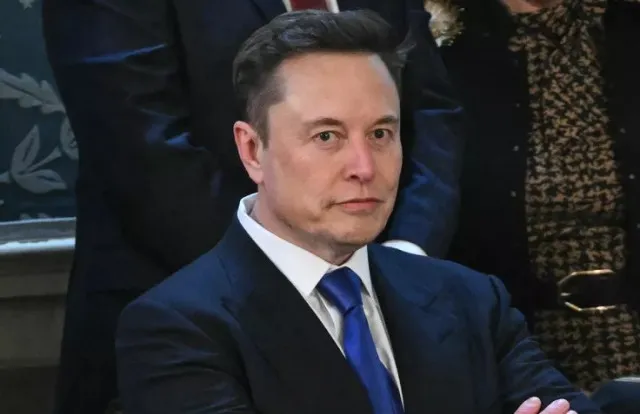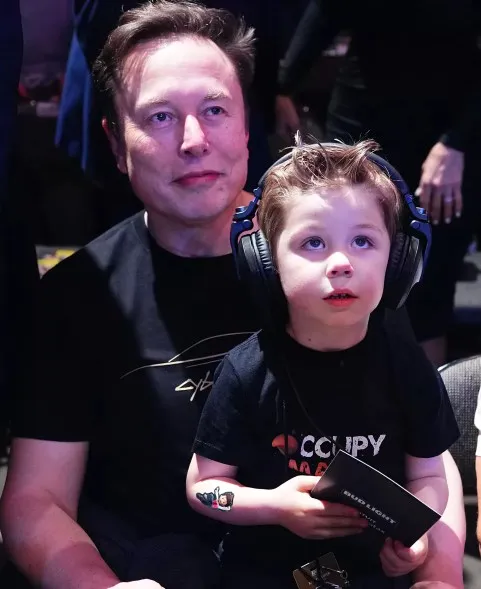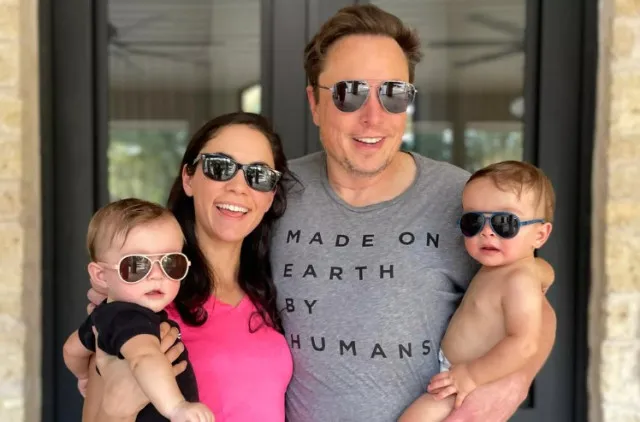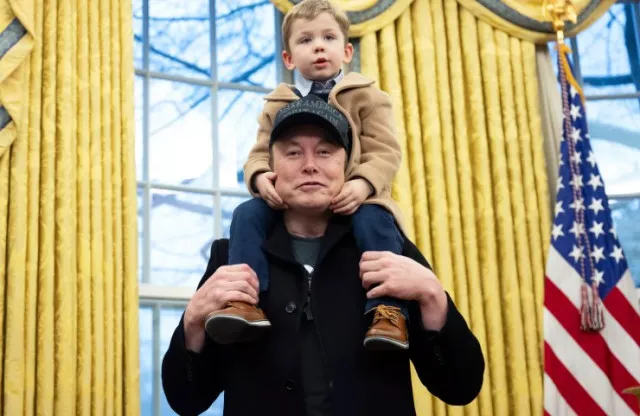
Elon Musk, Father of 14, Plans to Build a ‘Legion’ of Children Before the Apocalypse
Elon Musk, the influential billionaire and CEO of Tesla and SpaceX, is once again grabbing attention with his daring comments. Known for his bold visions, Musk has revealed his desire to father a “legion” of children before what he describes as the impending apocalypse. His provocative statement has sparked curiosity—what does the future hold for Musk, and why is he focused on expanding his family on such a massive scale?

Elon Musk’s Growing Family: 14 Kids and Counting from Multiple Relationships
Elon Musk, already the father of 14 children from four different relationships, is no stranger to a large family. His brood includes a mix of twins and triplets, painting a picture of a busy and expanding household. As Musk continues to push the boundaries of technology and innovation, his personal life is just as full of surprises, with his growing family adding to his ever-evolving legacy.

Inside Elon Musk’s Expanding Family: A Journey Marked by Tragedy, Twins, and Tech-Inspired Names
Elon Musk’s journey into fatherhood began with heartbreak. His first child, Nevada Alexander, was born in 2002 but tragically passed away at just 10 weeks old.
In the years that followed, Musk and his first wife, author Justine Wilson, welcomed five more children—twins Vivian and Griffin, now 20, and triplets Kai, Saxon, and Damian, who are 19.
Musk later went on to have three children with musician Grimes, continuing his uniquely futuristic naming trend: sons X Æ A-12 and Techno Mechanicus, and daughter Exa Dark Sideræl.
From personal tragedy to a growing, unconventional family, Musk’s fatherhood journey is as headline-worthy as his ventures into space and AI.

Elon Musk Reportedly Aims to Build a ‘Children’s Army’ Before the End of the World
Elon Musk’s vision of the future just got even more unexpected—and a little Roman. The tech titan reportedly wants to assemble what he calls a “legion-level” family before what he ominously refers to as the apocalypse. The term “legion” harks back to ancient Rome, referring to vast military units made up of thousands of soldiers—suggesting Musk isn’t thinking small.
He’s not just joking around either. Musk has allegedly acknowledged that reaching this massive goal might require the use of surrogates.
“To reach legion-level before the apocalypse, we will need to use surrogates,” the SpaceX and Tesla CEO reportedly stated.
This bold ambition adds a new layer to Musk’s ever-expanding personal narrative—one that now seems to mix legacy-building with survival strategy.
And in a world where headlines often blur the line between science fiction and reality, Musk’s plans continue to keep the world watching—and wondering what’s next.
Musk Warns of a Looming Underpopulation Crisis
Beyond rockets and robots, one of Elon Musk’s most vocal concerns is surprisingly down-to-earth: a potential underpopulation crisis. Musk has repeatedly warned that, contrary to fears of overpopulation, the real threat to humanity’s future is a dramatic decline in global birth rates.
He’s publicly emphasized that many countries are already seeing falling fertility rates, which he believes could lead to societal collapse if left unaddressed. For Musk, building a large family isn’t just a personal choice—it’s part of a broader mission to secure the future of civilization.

Musk’s Mission: More People, or Civilization May Crumble
Elon Musk has long warned that humanity faces a crisis—not of overcrowding, but of too few people. At a 2021 event, he made his concerns crystal clear:
“I can’t emphasize this enough—there are not enough people,” he said.
“And I think one of the biggest risks to civilization is the low birth rate… If people don’t have more children, civilization is going to crumble.”
For Musk, the numbers don’t lie. Declining global birth rates, he argues, pose a serious threat to the future of society. And he’s not just sounding the alarm—he’s taking action in his own way.
From Tweets to Parenthood: Musk’s Family Vision Plays Out on Social Media
Never one to shy away from the spotlight, Musk has even taken to social media to share his thoughts—and perhaps even scout potential partners for his growing legacy. According to reports, he’s used his platform on X (formerly Twitter) to connect with women who might be interested in having children with him.
In response to recent headlines about his unconventional family planning, Musk showed his signature mix of humor and sarcasm, tweeting:
“TMZ >> WSJ”—a cheeky nod to his preference for tabloid-style coverage over traditional reporting.
Whether it’s a call to arms for population growth or a modern twist on dynasty-building, Elon Musk’s quest for a “legion-level” family is unfolding in real time—and the world is watching.

Elon Musk Quietly Welcomes Another Child with Ashley St. Clair
In February 2025, political commentator Ashley St. Clair made a surprising announcement on X (formerly Twitter): she and Elon Musk had welcomed a child together back in September 2024. The news, which quickly went viral, added yet another name to Musk’s rapidly growing family tree.
A paternity test reportedly confirmed the connection with near-certainty—showing a 99.9999% probability that Musk is indeed the father.
A Legacy in the Making: Musk’s Expanding Family Tree
Elon Musk first became a father in 2002 with the birth of his son Nevada Alexander, whom he shared with his ex-wife, Justine Wilson. Tragically, Nevada passed away at just 10 weeks old—a loss that marked the beginning of a complex and ever-evolving family journey.
Justine and Musk went on to have five more children: twins Vivian and Griffin, now 20, and triplets Kai, Saxon, and Damian, now 19.
In later years, Musk fathered three children with musician Grimes—sons X Æ A-12 and Techno Mechanicus, and daughter Exa Dark Sideræl—as well as three more with Neuralink executive Shivon Zilis.
With his latest child, reportedly born with Ashley St. Clair, Musk now has at least 14 known children—a number that aligns with his vocal advocacy for larger families and his mission to combat what he calls a global underpopulation crisis.